Comment éviter de nuire à votre revenu d'exploitation net : Immeubles à appartements
Le REN (ou Revenu d'Exploitation Net) est ce que les acheteurs utilisent pour déterminer le prix maximal qu'ils paieraient pour un immeuble à appartements. Plus le REN est élevé, plus le prix est élevé, selon la formule (REVENU BRUT – TOUS LES DÉPENSES = REVENU D'EXPLOITATION NET). Il s'agit essentiellement de l'argent en poche du propriétaire en fin de journée. Les acheteurs, en particulier les plus avisés, "normalisent" le REN, donc les économies liées à une propriété privée peuvent ne pas être applicables pour augmenter le REN (c'est-à-dire un propriétaire qui s'occupe lui-même de l'entretien ménager n'aura pas cette dépense retirée du calcul du REN par un acquéreur. Au contraire, cette dépense sera incluse au tarif du marché ou, selon le taux de dépenses d'exploitation standard de l'acheteur dans le cas des acheteurs avisés)
In today’s market, what are some of the expenses that could seriously hurt NOI?
Assurance bâtiment
Nous avons vu cela augmenter considérablement au cours de la dernière année ou presque, principalement à cause du coût de remplacement qui fait partie de toute assurance standard (dans le cas où le bâtiment devrait être reconstruit, et basé sur le fait que les coûts de construction ont considérablement augmenté ces 5 dernières années). Il est essentiel de comparer les offres avant le renouvellement de votre police. Voici quelques chiffres pour vous donner une perspective : Un de nos clients a pu réduire sa facture d'assurance de $18K à environ $10K par an avant le renouvellement, en changeant de compagnie d'assurance. Gain total : une augmentation de la valeur de l'actif de $160,000 ! Il existe encore des compagnies d'assurance qui vous surprendront avec un taux bien plus bas, et lorsqu'il s'agit de vendre ou de refinancer, quelques milliers de dollars de dépenses feront une énorme différence dans les rendements ou le prêt disponible.
Manque de revenus annexes
Souvent, un propriétaire ne maximise pas le potentiel pour des revenus supplémentaires tels que le stationnement, le stockage, et autres. Nous avons eu un client qui n'avait pas d'accords de stationnement avec les locataires et facturait le même montant pour le stationnement intérieur que pour le stationnement extérieur, perdant $30/place par mois en revenus potentiels. Basé sur notre calcul pour l'impact sur le REN, cela s'est traduit par une valeur de bâtiment approximative de $600,000 ! C'était une excellente nouvelle pour l'acheteur, mais ce qui est surprenant, c'est que le groupe propriétaire ne réalisait même pas que l'impact allait être "considérable" sur ce qu'ils considéraient comme une variance mineure.
Manque de revenus de vente au détail ou non actualisés
Avoir une composante de vente au détail dans un immeuble d'appartements change complètement l'évaluation de l'actif. La principale différence est l'incapacité d'obtenir un prêt assuré par la SCHL; cependant, même en mettant de côté cet aspect, ne pas actualiser les revenus de vente au détail peut rendre le bâtiment invendable (ou vendable seulement avec une remise importante). Même si vous avez “suffisamment” de revenus provenant des appartements, ne laissez pas la partie commerciale vide si vous prévoyez de vendre ou de refinancer dans les 12 prochains mois.
Des dépenses élevées dues à de vieux équipements
Vous pourriez hésiter à dépenser des milliers de dollars pour un nouveau fourneau, mais combien de valeur d'actif perdez-vous en conservant l'actuel ? Alors que les coûts énergétiques semblent atteindre des sommets, votre REN reflétera les pertes de chaleur d'un fourneau inefficace, de vieilles fenêtres et d'un toit inadéquat. Un hiver rigoureux aura un impact significatif sur la valeur de l'actif l'année suivante car les acheteurs examinent généralement les dépenses des 6 à 12 derniers mois dans leur évaluation.
Une évaluation marchande de votre immeuble peut aider à identifier les sources de revenus manquées et d'autres éléments nuisibles à votre REN.
Avant d'accepter une offre
- Renseignez-vous sur l'historique de l'acheteur en matière de clôture de transactions.
- Demander à voir une preuve de fonds pour l'acompte (présumez 30-40% du prix d'achat).
- Re-evaluate conditions and delays
- Découvrez si l'acheteur doit lever des fonds pour concrétiser la transaction.
- Clarifiez si l'acheteur peut se rétracter de l'accord sans conséquence pour lui après que votre capacité à vendre ait été « en suspens » pendant leur période conditionnelle.
- Know that if your offer falls-thru this will raise a question mark in the mind of other buyers and potentially impact the sell-ability of the asset.
Nous ne travaillons qu'avec des acheteurs éprouvés, qui peuvent généralement présenter des offres qui ne sont pas conditionnées au financement.
Immobilier Baron se spécialise dans la mise en relation d'acheteurs et de vendeurs d'immeubles d'appartements. Ramona travaille en partenariat avec Mikael Kurkdjian et une équipe de professionnels de l'immobilier pour offrir les meilleurs services de courtage de type boutique dans le domaine des transactions d'appartements en Ontario et au Québec.
Travaillez avec notre équipe de courtiers expérimentés. Contactez-nous maintenant!



